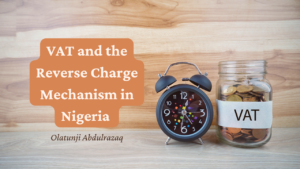On 25 July 2018, the South African Revenue Service (SARS) published its Guide on Mutual Agreement Procedures (Guide) as a general guidance on the Mutual Agreement Procedure (MAP), providing parameters in which competent authorities from the governments of contracting jurisdictions can interact with the intent to resolve international tax disputes.
Finding the MAP
MAP is a procedure provided for in a double tax agreement (DTA) or “tax treaties” between the governments of two jurisdictions. DTAs or tax treaties encapsulate international agreements between foreign jurisdictions. The aim of these agreements is to eliminate the occurrence of double taxation with respect to taxes on income and on capital, without creating tax evasion or avoidance in the form of non-taxation and reduced taxation.
The tax treaties and DTAs between South Africa and other jurisdictions generally mimic Article 25 of the Organisation for Economic Cooperation and Development’s (OECD) Model Tax Convention on Income and on Capital (Convention), where the OECD has provided a basis for MAP.
Article 25 emphasises that jurisdictions shall endeavour, by mutual agreement, to resolve the situation of taxpayers subjected to taxation that is not in accordance with the Convention. Moreover, Article 25 invites and authorises the parties to the DTA or tax treaty to resolve, by mutual agreement, any problems relating to the interpretation or application of the Convention and to consult together regarding the elimination of double taxation in instances not provided for in the Convention.
The MAP to SARS
The Guide describes that MAP is essentially a special procedure that complements domestic dispute resolution procedures. Taxpayers may refer to the MAP when tax has been charged, or is going to be charged, in spite of the provisions of the relevant DTA or tax treaty in place.
Regardless of any remedies in the domestic law of the jurisdictions who are party to the DTA or tax treaties, MAP is available for the taxpayer to present its case to the competent authority (that is, the position, person or body within a contracting jurisdiction to whom issues can be addressed to) of the jurisdiction of residence, or both jurisdictions. As such, South African taxpayers may find that the MAP will allow for preliminary assessment by the Commissioner for SARS, in its capacity as the competent authority to which the case would be presented, in order to determine whether the case is justified and to ensure that any taxpayer entitled to the benefits of a DTA or tax treaty is not subject to taxation that is not in accordance with the terms of said DTA or tax treaty. At all times, the competent authority will seek to guarantee that taxation in both jurisdictions is consistent with the terms of the DTA or tax treaty in place.
The role of the Commissioner for SARS for purposes of MAP, according to the Guide, therefore includes the exchange of information, providing assistance in the collection of taxes and interacting with counterparts in order to correctly interpret or apply the provisions of DTAs and tax treaties in order to resolve international tax disputes.
Within SARS, this role has been delegated to designated representatives in the Legislative Research and Development subdivision within Legal Counsel, who have the authority to endeavour to resolve MAP cases and to timeously implement agreements reached based on an objective and consistent application of DTA/treaty provisions applicable to the taxpayer’s specific facts and circumstances.
MAP of South African Law
South African law makes provision for the use of MAP to resolve international tax disputes in s108(1) of the Income Tax Act, No 58 of 1962 (Act). Section 108(1) states that South Africa may enter into an agreement with the government of any other jurisdiction with the view to preventing, mitigating or discontinuance of the levying, under the laws of South Africa and the other jurisdiction of tax in respect of the same income, profits or gains, or donation. Section 108(2) of the Act mentions that, after the approval of Parliament and with regard to any constitutional limitations, the DTA or tax treaty and the articles contained therein will become part of South African domestic law.
Once the DTAs or tax treaties have been put into effect as per s108 of the Act, taxpayers and tax practitioners are invited to utilise, for example, OECD transfer pricing guidelines, the United Nations (UN) Model Tax Convention and Commentary and the UN Practice Manual on Transfer Pricing in order to aid any interpretative issues that arise from said DTAs or tax treaties. Useful reference points recommended by SARS also include the Manual on Effective Mutual Agreement Procedures (MEMAP) and Base Erosion and Profit Shifting (BEPS) Action 14 Report.
Using the MAP
The Guide sets out that a MAP will apply, for example, in instances where dual residency is at issue or where there are difficulties or doubts as to the interpretation or application of the OECD Convention. MAP can also be utilised where withholding taxes are not withheld in accordance with the relevant DTA or tax treaty, or in matters regarding attribution or transfer pricing cases.
Where a taxpayer resident in one of the contracting states to a DTA or tax treaty has experienced taxation that is contrary to the provisions of said DTA or tax treaty, the taxpayer may submit to the competent authority in the prescribed manner the minimum information requirements to lodge a MAP, which include, among others, the taxpayer particulars, the facts of the case, the basis for the request and an interpretation of the issues requested to be resolved by MAP.
Time limits for lodging a MAP request are generally stipulated in DTAs or tax treaties (except in the case of DTAs with the United Kingdom) as being three years from “first notification”. “First notification” is the finalisation of the enquiry or audit that resulted in the assessment that gave rise to the double taxation or taxation not in accordance with the DTA or tax treaty. If the period in the relevant DTA or tax treaty is longer than that imposed by domestic law, the longer period will apply and the DTA will effectively override domestic law.
Considering the MAP
The competent authority will, upon lodging of the MAP request, consider if the DTA or tax treaty applies to the transaction at hand, whether the actions of one jurisdiction or both result or will result in taxation not in accordance with the DTA or tax treaty, and whether the MAP request has been timeously lodged. The competent authority will take into account the full scope of a taxpayer’s submission and the information provided in a two-stage approach.
The first stage – the unilateral stage – must examine whether the taxation complained of is due wholly or partly to a measure taken in that jurisdiction. The issue in this instance can be resolved without moving beyond the first stage, as adjustments are made or relief is allowed in a manner that appears to the competent authority to be justified.
The second stage – the bilateral stage – will involve instances where the taxation complained of is due wholly or partly to a measure taken in another jurisdiction, in which case the issue is submitted to the competent authority of the other jurisdiction.
At all stages, the competent authorities will use their best endeavours to reach agreement.
MAP for the taxpayer
As set out in SARS’s Guide, MAP procedure provides an avenue for the taxpayer that is in addition to the domestic law objection and appeal procedures. The taxpayer can therefore pursue MAP and domestic legal remedies simultaneously.
It must be noted that the MAP will not override a domestic judicial decision and MAP will therefore not withstand a court’s judgment on a matter. SARS therefore makes recommendation that the taxpayer suspends domestic law remedies after a South African tax appeal has been lodged or Rule 31 and 32 statements have been filed, until MAP is concluded.
Ultimately, SARS has conveyed its interest in furthering MAP usage in South Africa and has therefore provided the taxpayer with another route on the map to international tax dispute resolution.











